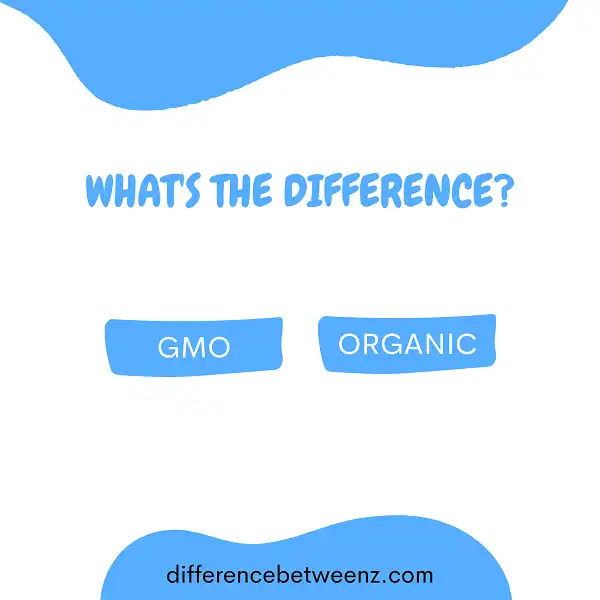Are you curious about the difference between GMO and organic food products? For many consumers, it can be confusing to know which is the better choice when making healthy food purchases. With this blog post, we will explore the key distinctions between these two terms so that you can make informed decisions based on your own preferences. We’ll take an in-depth look at GMO foods, covering what they are and how they’re made, then move on to organic options, discussing their merits and potential drawbacks. By reading through this article, you’ll have a firm understanding of both types of food processing methods as well as discerning whether one may be preferable over the other depending on your needs.
What is GMO?
GMO stands for the genetically modified organism and is a term used to describe organisms that have been altered using genetic engineering techniques. GMO is a powerful tool that can be used to improve the quality of food, speed up the production of crops, and provide specific traits to animals such as a greater resistance to diseases.
Although GMO has its benefits, some people are worried about the risks associated with eating GMO products. However, GMO foods are just as safe as non-GMO foods and have been extensively tested by governmental agencies to ensure their safety. With GMO, many suppliers are now able to provide healthier options for consumers at a fraction of the cost.
What is Organic?
Organic is a term used to describe foods, farming practices, and products that have been produced without the use of synthetic chemicals. Organic foods must be grown in the land that has been free from any form of chemical-based or artificial fertilizers or pesticides for at least three years in order to be certified as organic.
- Organic farming relies heavily on traditional methods such as crop and livestock rotations, the use of natural seed varieties, and pollution prevention instead of toxic synthetic inputs.
- Organic produce is often fresher and thought to contain more nutrients due to its avoidance of artificial ripening agents, preservatives, and irradiation.
- Organic products are also inherently ethical since they exclude the use of animal testing, forced labor, and unsustainable material sourcing, making them safer for both human health and our planet.
Difference Between GMO and Organic
GMO and organic are two production methods that have drastically different approaches to farming and harvesting.
- GMO, or genetically modified organism, is a method of crop production where the genetic makeup of a plant is altered to promote desirable traits such as pest resistance and can reduce the resources needed for cultivation.
- On the other hand, organic projects abide by strict guidelines that work in harmony with nature to create crops free from synthetic substances like chemical pesticides and fertilizers.
Ultimately, GMO represent a more economically feasible way of producing food with dramatically less investment in land, water, and other resources, while organic allows for the preservation of traditional farming practices that protect both humans and wildlife from potentially harmful chemicals.
Conclusion
The main difference between GMO and organic food is that GMOs are modified in a laboratory by scientists while organic foods are not. GMOs have had their DNA altered in some way to make them resistant to pests or herbicides or to create a new trait. On the other hand, organic foods are grown without the use of pesticides, herbicides, or artificial fertilizers. In addition, organic farmers often use sustainable farming practices that protect the environment, such as crop rotation and composting.
When it comes to your health, there is no clear evidence that one type of food is better than the other. Some people believe that consuming GMOS may increase your risk of developing cancer or other health problems, but more research is needed to confirm these claims. The best way to reduce your exposure to pesticide residues and synthetic chemicals is to eat a variety of fresh fruits and vegetables, whether they are organic or not.


